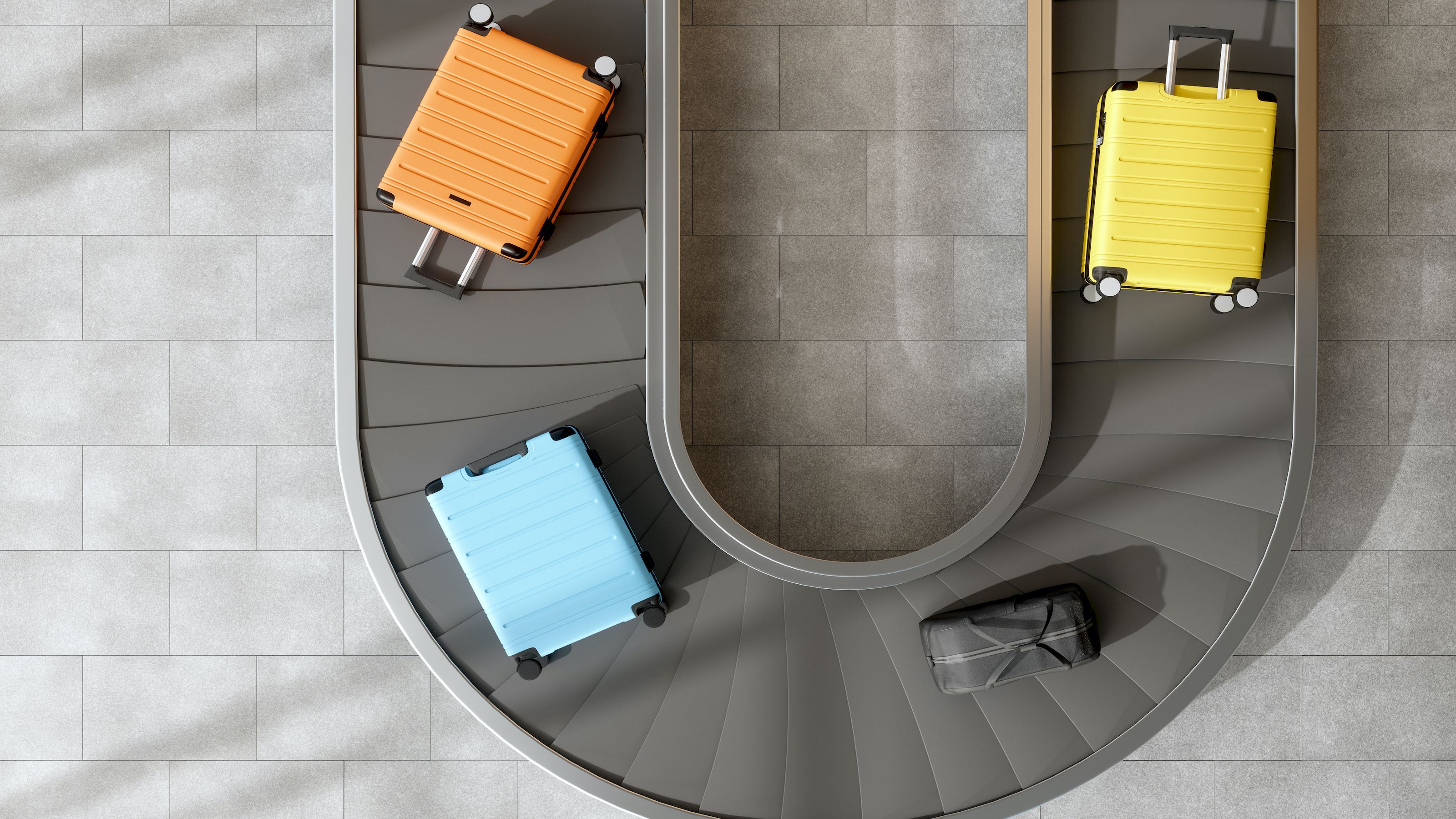CNN Underscored reviews financial products such as credit cards and bank accounts based on their overall value. We may receive a commission through the LendingTree affiliate network if you apply and are approved for a card, but our reporting is always independent and objective. Terms apply to American Express benefits and offers. Enrollment may be required for select American Express benefits and offers. Visit americanexpress.com to learn more.
Believe it or not, there was once a time when checked baggage fees were not the norm. In fact, they’re a fairly recent development as airlines have turned to ancillary fees as a way to generate more revenue from flyers.
While checked baggage fees have largely been deemed a success for the airlines’ bottom line, of course, they come at the expense of the passenger’s wallet. The federal Bureau of Transportation reported that airlines generated a staggering $5.8 billion from baggage fees alone in 2019.
While these fees have been a windfall for airlines, they understandably have been a source of frustration for flyers who have had to swallow the reality of travel getting more expensive.
Luckily, though, there are plenty of ways to get around the pesky baggage fees that have become the norm over the past several years. Before diving into those tips, keep in mind that if you’re flying on a long-haul international flight with any airline, check directly with the carrier to see whether you’ll have to pay for checked baggage. Some airlines charge for checked luggage with all basic economy fares, while some charge based on the region to which you’re flying. It pays to do your research ahead of time.
Before you book your next flight, here are five of the easiest ways you can avoid paying those pesky extra fees.
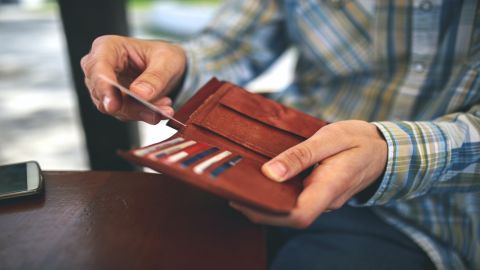
Soon after airlines began charging for checked bags, credit card issuers began revamping the benefits of airline co-branded cards to include a free checked bag for the card holder (and in some cases, their traveling companions). To this day, this benefit is quite common across airline co-branded cards — and can ultimately save you plenty of money, especially if you travel more than a couple of times per year.
Here’s a look at some of the co-branded offerings from major US airlines that entitle you to a free checked bag when you fly.
Alaska Airlines Visa Signature® credit card: First checked bag free for you and up to six companions on the same itinerary. This card has an annual fee of $75.
Citi® / AAdvantage® Platinum Select® Mastercard®: First checked bag free for you and up to four companions traveling on the same domestic itinerary. This card charges a $99 annual fee, which is waived for the first year.
AAdvantage® Aviator® Red World Elite Mastercard®: First checked bag free for you and up to four companions traveling on the same domestic itinerary. This card charges a $99 annual fee.
Citi® / AAdvantage® Executive World Elite Mastercard®: First checked bag free for you and up to eight companions traveling on the same domestic itinerary. This card charges a $450 annual fee.
Delta SkyMiles® Gold American Express Card: First checked bag free for you and up to eight companions traveling on the same itinerary. This card charges no annual fee for the first year, then $99 each subsequent year (see rates and fees).
Delta SkyMiles® Platinum American Express Card: First checked bag free for you and up to eight companions traveling on the same itinerary. This card charges a $250 annual fee (see rates and fees).
Delta SkyMiles® Reserve American Express Card: First checked bag free for you and up to eight companions traveling on the same itinerary. This card charges a $550 annual fee (see rates and fees).
Hawaiian Airlines® World Elite Mastercard®: First checked bag free for the primary card holder when you use the card to purchase your ticket directly from Hawaiian Airlines. This card charges a $99 annual fee.
JetBlue Plus Card: First checked bag free for you and up to three companions on the same itinerary when you use the card to purchase the tickets. This card charges a $99 annual fee.
United℠ Explorer Card: First checked bag free for you and one companion on the same itinerary when you use the card to purchase the tickets. This card doesn’t charge an annual fee for the first year, then $95 each subsequent year.
United Quest℠ Card: First and second checked bags are free for you and one companion on the same itinerary when you use the card to purchase the tickets. This card charges a $250 annual fee.
United Club℠ Infinite Card: First and second checked bags are free for you and one companion on the same itinerary when you use the card to purchase the tickets. This card charges a $525 annual fee.
Airline co-branded credit cards aren’t the only way to ensure your bags fly for free. Some non-branded premium travel rewards credit cards come with annual travel credits that can be used to cover the cost of a checked bag.
Here’s a look at some of the best options:
- The Platinum Card® from American Express: The Amex Platinum card — widely considered one of the best travel cards — offers a $200 annual airline credit that can be applied to incidental airline purchases, including checked bags. You must enroll in this benefit, and you’re limited to an airline of your choice for one year.
- Chase Sapphire Reserve®: The Sapphire Reserve offers an annual $300 travel credit that is flexible to use, as any travel expense is eligible. If you have to pay for a bag, simply charge it to your card and you’ll be issued a statement credit for that amount.
- Capital One Venture X: This new product from Capital One offers a $300 annual travel credit for purchases made through the Capital One Travel portal, but also allows you to redeem points at a rate of one cent apiece to cover eligible travel purchases. For example, if you paid for a $30 bag fee with your card, you could elect to use 3,000 points to wipe the charge from your statement.

Airlines reward their most loyal flyers with unique perks like early boarding, preferential access to better seats (or even free upgrades), airport lounge access and more — including more generous checked bag allowances.
If you fly enough to earn elite status with a major US carrier, you won’t have to worry about paying to check your bags. And once you reach higher levels of elite status, you’ll be able to check more — and heavier — bags without incurring extra charges.
Let’s take a look at the various allowances for elite members across the major US airlines.
- Alaska Airlines: MVP and MVP Gold members receive two free checked bags. MVP Gold 75K and MVP Gold 100K members receive three free checked bags.
- American Airlines: AAdvantage Gold members receive one free checked bag, AAdvantage Platinum members receive two free checked bags and AAdvantage Platinum Pro and AAdvantage Executive Platinum members receive three free checked bags. (Keep in mind that you can now earn American Airlines elite status exclusively through spending on your co-branded credit card.)
- Delta Air Lines: Silver Medallion members receive one free checked bag up to 70 pounds — and they can check an additional bag for free if they also hold a Delta co-branded credit card. Gold Medallion members receive two free checked bags up to 70 pounds each. Platinum Medallion and Diamond Medallion members receive three free checked bags up to 70 pounds each.
- Hawaiian Airlines: Pualani Gold members receive two free checked bags and Pualani Platinum members receive three free checked bags.
- JetBlue Airways: TrueBlue Mosaic and Mosaic+ members receive two free checked bags
- Spirit Airlines: Free Spirit Gold members receive one free checked bag.
- United Airlines: Premier Silver members receive one free checked bag up to 70 pounds, Premier Gold members receive two free checked bags up to 70 pounds each and Premier Platinum and Premier 1K members receive three free checked bags up to 70 pounds each.
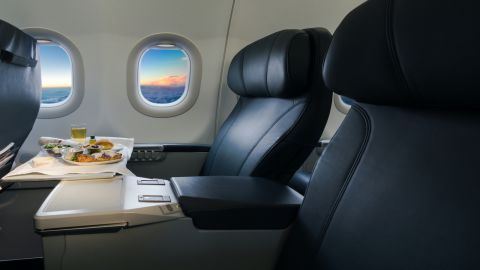
Another way to guarantee you won’t have to pay extra to check a bag is to book a ticket in first or business class. In the majority of cases, you’ll be allowed to check one — or even two — bags for free when you book a ticket in a premium cabin.
Of course, the ticket will likely be more expensive, and the savings for checking bags probably won’t be enough to overcome the price differential. But it’s worth looking into if you know you’re going to be traveling with a lot of luggage.
Keep in mind, too, the power of points in miles. While the cash fares will be much higher than in economy, you could use your loyalty points and miles — or those earned from a rewarding travel credit card — to cover the cost of a ticket. In fact, premium redemptions are oftentimes some of the best uses of your points and miles.
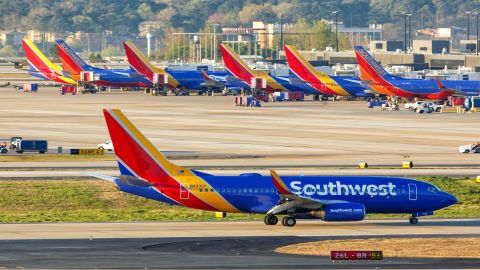
For years, Southwest has sought to differentiate itself from the competition by staying true to its “Bags fly free” policy, which allows each ticketed passenger to check two pieces of luggage free of charge to their final destination. With most of the major legacy US airlines charging around $30 for the first bag and more for the second, picking Southwest over another airline could result in significant savings — especially if you’re traveling with a family.
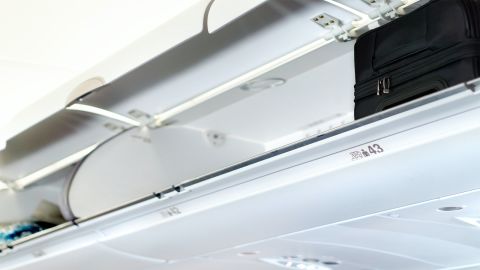
The easiest way to avoid paying for a checked bag is, well, to not check a bag. If you can travel lightly, pack all of your things in a carry-on bag and a travel backpack and take it with you on the plane, which will also save time at the end of your journey.
Beware, though, that simply flying with carry-on luggage only won’t always save you from having to pay. If you’re flying a low-cost carrier like Frontier Airlines or Spirit Airlines, you’ll likely be charged for a carry-on. And if you choose a basic economy ticket with most of the major legacy carriers, you’ll also be on the hook for the privilege of carrying a bag on the plane. The bottom line here is to book a non-basic economy ticket with a legacy carrier if you’re planning to only take carry-on luggage with you.
Looking for a travel credit card? Find out which cards CNN Underscored chose as our best travel credit cards of 2022.


